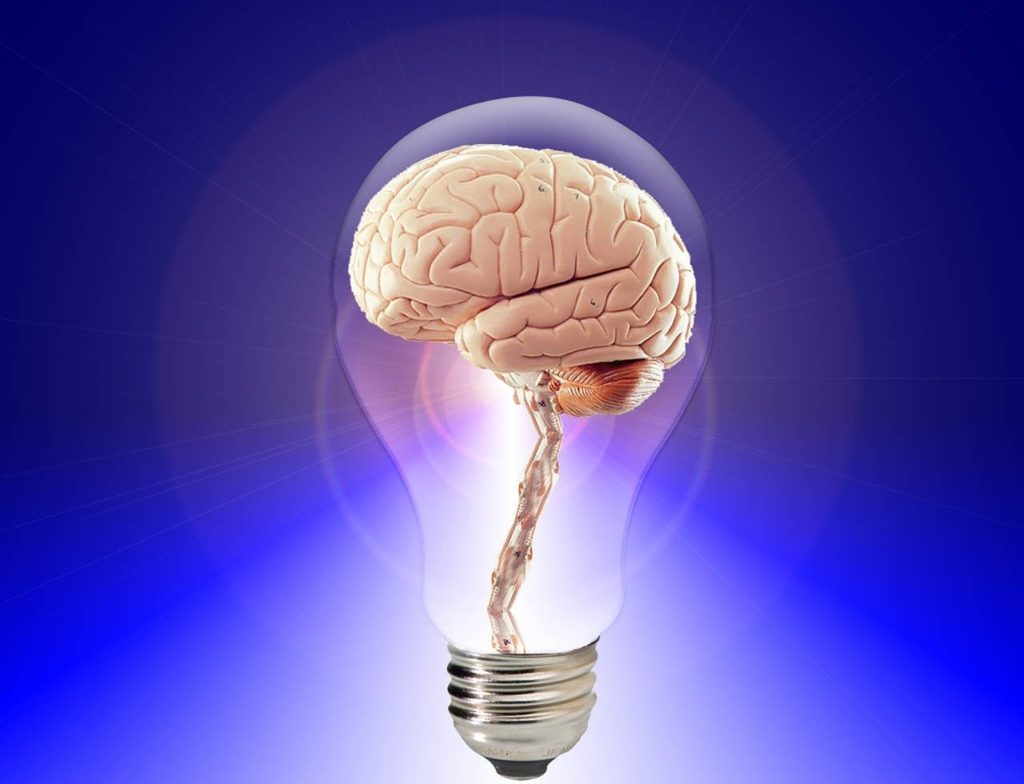202311-s1i3
'FREEDOM OR DEATH' 2023 NOVEMBER - SERIES 1 ISSUE 3
24K Journal of Virtues Science – Four articles on denial of Spirit, the true definition of freedom, and the philosophy underlining knowledge.
2023 November Introduction
Dear Reader,
Welcome to the third issue of 24K Journal of Virtues Science!
What is freedom? What is freedom without actions toward more and better freedom? Or what is freedom without good options?
If freedom without good options leads to less freedom, can its ultimate end be called death? Honestly, what can obsession with materiality in itself lead to other than fewer good options, less freedom, and more death?
These are the questions primary to this issue. Will the future hold more freedom or more death? More improvement or more pain?
Can science ignorant of these fundamental questions be considered beneficial in any terms? Can a scientist do good without a philosophically sound foundation for its definition?
The first article in this issue discusses the denial of Spirit, which is the essence of a loosely mechanistic perspective on materiality itself as presumed origin of all phenomena. This is the precursor position to scientism, which is dealt with in the third and fourth articles: Epistemology in Crisis 1 & 2. The second article of this issue is a continuation in series called Complete Freedom 2. The truth is that those lost to Spirit must be trapped to the material, either physically or mentally, closing them off from actual freedom. Nobody can be free who does not have a fundamental sense of good in reflection of reality.
Live Well,
Dr. Roe
Editor-In-Chief
24K Journal of Virtues Science
Online ISSN: 2994-5844
Print ISSN: 2994-5836
AuraPura Publishing
This issue can be accessed at here: https://24k.cc/issue/202311-s1i3/ or in EPUB format, here: https://24K.cc/wp-content/uploads/2023/11/2023-November-24K-Journal-of-Virtues-Science.epub
All Articles ©2022-2023 24K Journal of Virtues Science and Dr. Marcus Roe
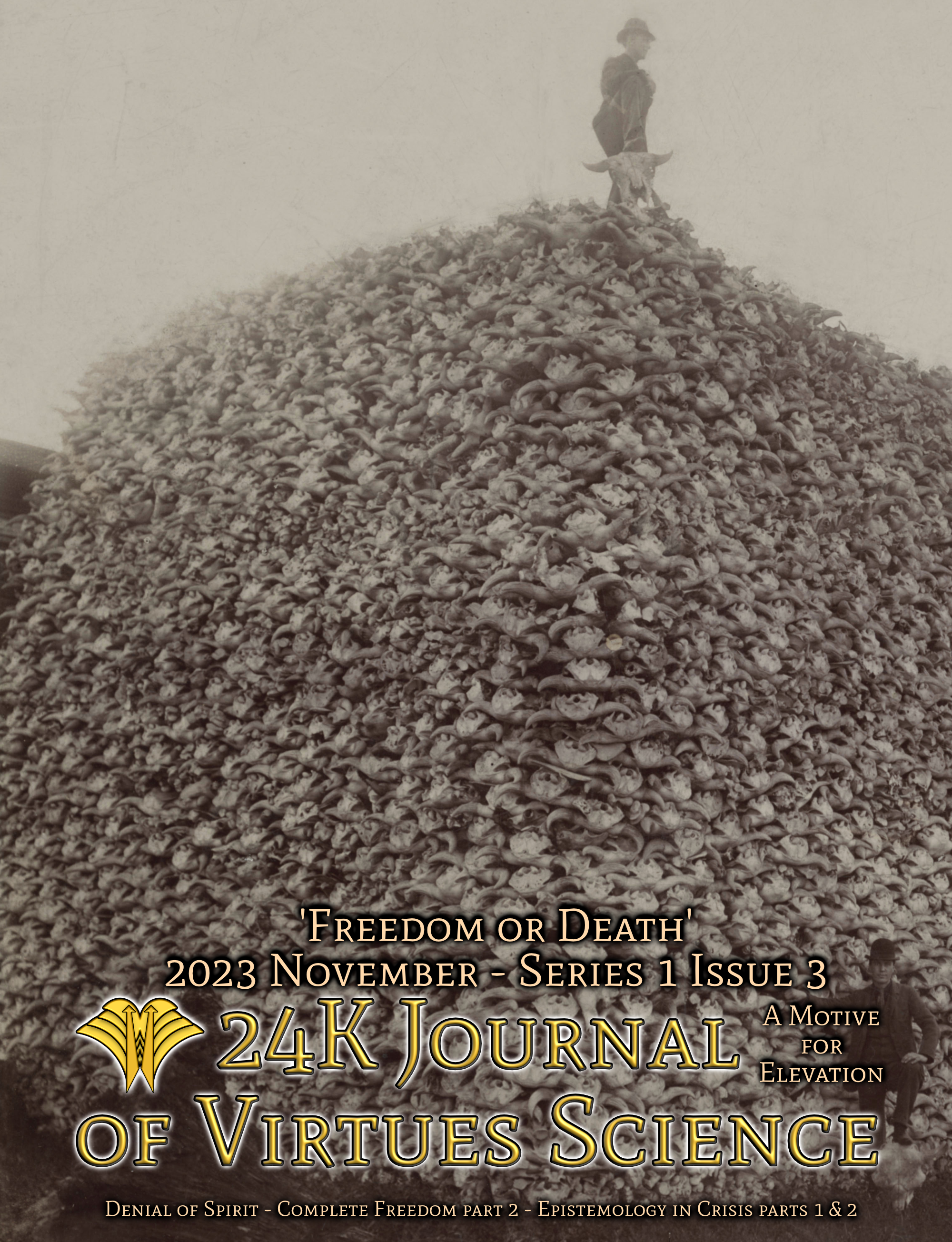
DENIAL OF SPIRIT – ADVANTAGES OF GENUINE STABILITY
DENIAL OF SPIRIT – ADVANTAGES OF GENUINE STABILITY
The tragedy of the modern era in Western Civilisation can be summed up as the ‘denial of Spirit.’ Material overabundance has been confused for genuine stability, which is impossible for populations actively in such denial. Psychotic garbage is forced upon the population instead of the elevational and culturally uplifting. Media is lost in a hellscape of degenerate depression skulking in hyper-ironic apathy. In exchange for a life of corporate servitude, the masses are fed proxified consolations for any ethical contradictions, by a false sense of progress through deconstruction of useful standards.


DAMAGE

We are all fundamentally damaged people, living now in the West. We must realise this. This can be determined true because the elites are doing everything short of frying us with enormous magnifying glasses. This is not true because of anything intrinsically wrong with people in the West. It is because the West is suffering from the equivalent of cultural neurotoxins, drowning out thought and disabling the minds of children before they ever have the chance to be the leaders of tomorrow or a force for good within their culture.
BORN IN MATERIALISM

A person is born into this World seeking out material gain rather than spiritual. These are the things that are experienced from day to day, the ravages of the dull material, the mundane. From the beginning one uses stability to appease the animalistic urges and seek moving pleasures, serving nothing but childish impulses. This is largely based upon an inability to be alone with one’s own thoughts. Though it is ridiculed, it is common and not their fault. Time alone with one’s own thoughts and beliefs is sheer agony if these are founded in simply avoiding pain and seeking hedonistic pleasures. They then attach these feeling of pleasures with the avoidance, thereby rewarding it and drawing the self down into the materialistic. Human beings are very adept at avoiding pain, though generally not actively and deeply thinking at the same time.
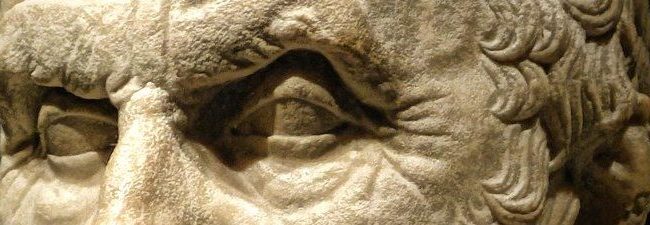
THOUGHTS
Ironically, the appropriate thoughts can best help people avoid pain, most especially for those who generally avoid thinking. People love to talk about themselves, though usually in hopes others will blindly support their actions. However other people are also only interested in their self, so they will comply, and say what they think the talker wants to hear. Talking passively about the things affecting oneself, rather than thinking critically, reaffirms the underlying avoidance. This is the primary reason that mental health therapy is popular and in demand.
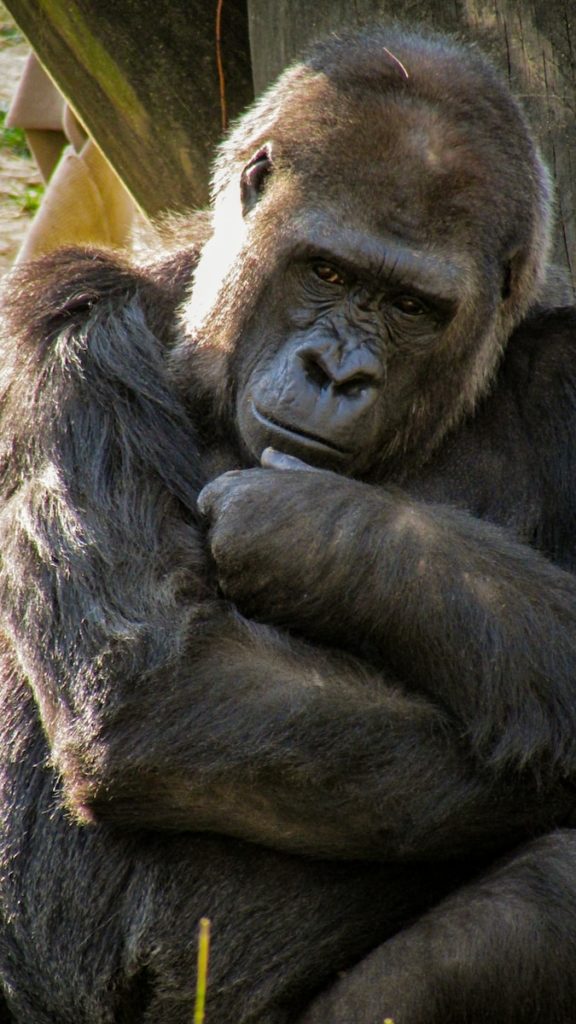
PROGRESS
When a person achieves a higher level of spiritual progress, they may begin to think themselves outside of this dynamic, however other people still rely upon them and all the more with the progress. Due dates remain and consequences are real. Legitimate stressors should goad a person to action and not cause overreaction. These situations cannot be ignored, however they should be managed and not allowed to overwhelm the mind. This is the equivalent of opening one’s eyes for the first time. After the wonder of brightness and clarity wears off, eventually one sees how dirty everything is, metaphorically speaking this is how imperfect the World is. Rather than depressing, this is testament to the amazing things accomplished in it.
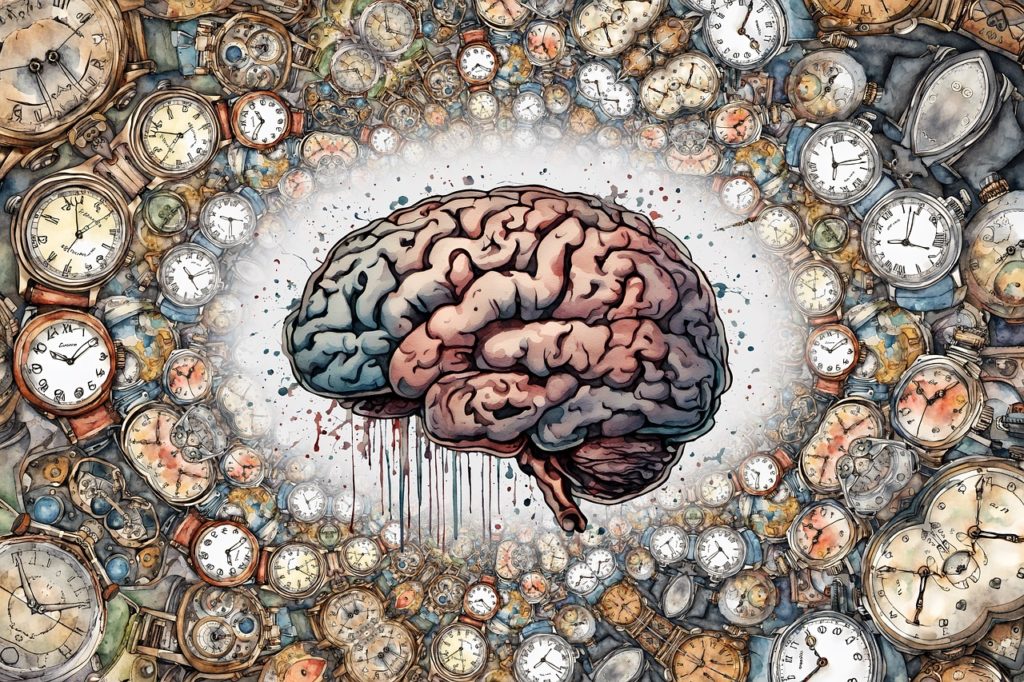
EXTRINSIC

Through spiritual progress, a person realises their worry over the extrinsic things need not be so awful, and so they will seek to detach from the materialistic corporate mechanisms. They seek stability for self and family while being sustained through local subsistence outside lockstep with industrial food consumerism. The best stability, however, is won through the advancement of love. Executed opportunities to move toward love are identical with the achievement of immanent stability, of which cultural and community contributions might someday nobly reflect. Stability from within, rather than simply materialistic security, offers a mental resilience the likes of which no other type of strength can match.
CULTURAL CONTRIBUTION
The highest expression of moving toward love is accomplished through cultural contributions. Most especially in those ideas and artforms used to guide further cultural advancement. Within the higher arts that are found tendencies to elevate the human spirit and encourage growth. This sort of culture is necessary, as civilisation cannot persist and grow without it. The loss of this level of high culture implies the steady deconstruction of the society.
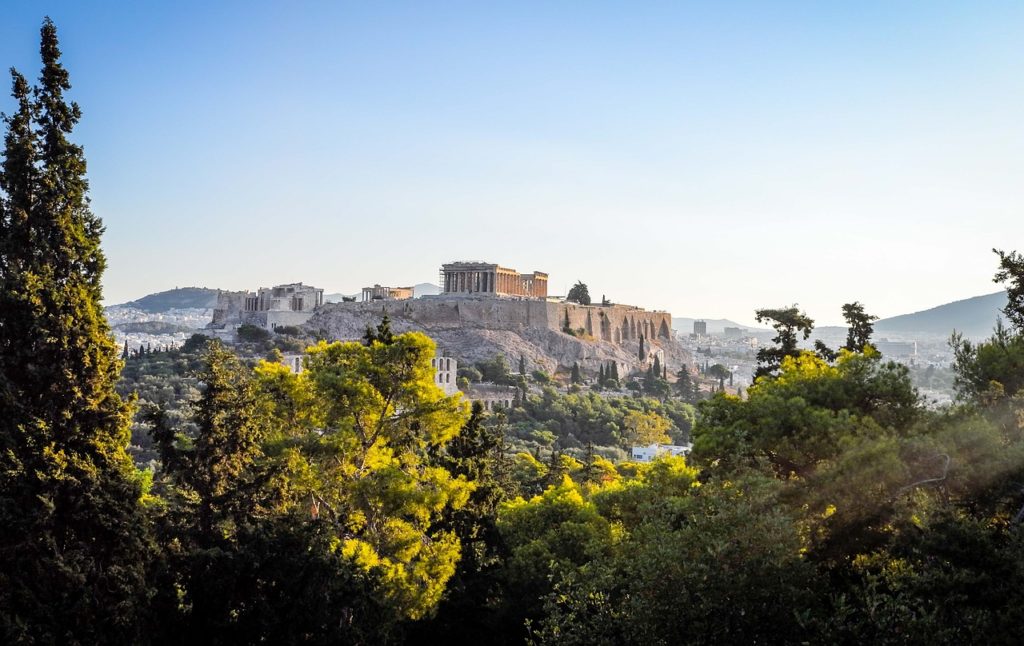
DEMONIC HALLUCINATIONS
It can certainly be said that the culture of the West has been in decline since the loss of focus upon high society and the arts expressive of reality, which is to say generative thought devoid of delusion or psychotic notions. Modern arts, quite conversely, surrender all notions of reason or rationality, instead opting for essentially demonic hallucinations. This was done because broken people are easier to control, and the powers-that-be will not hand over any power to people they cannot control. People who are genuine artists and contributors to high culture are not so easily controlled. The entire apparatus of popular art was turned away from high art and pushed into the frame of common contributions and racket.
TRUE ARTS

One who devotes time to the study of the masters in any given art, to mimic their technique, could not expect any renown for such an accomplishment. Such a one will not find promotion, rather they are ignored every time. Art based in realitistic beauty, which must subsist of promise with reason being highest, is utterly neglected. Instead insanity is promoted as art and then sold off and donated to museums for tax breaks. This is a game in which realistic beauty plays no part besides being used as blackmail. In such a World, a genuinely talented artist may find an art gallery to house their work for a time, but will not be acclaimed.
The paths to highest spiritual contributions have been, mostly, cut off in the West, replaced with garbage heaps of worthless literature, trash music, pornography, and other meaningless ‘arts.’ Cultures no longer exist around the greater musical forms of Baroque, Classicism, or Romanticism in which to contribute. These most elevational and uplifting musical forms have been actively superseded by music encouraging the most base of materialistic urges and moving pleasures.
PSYCHOTICISM
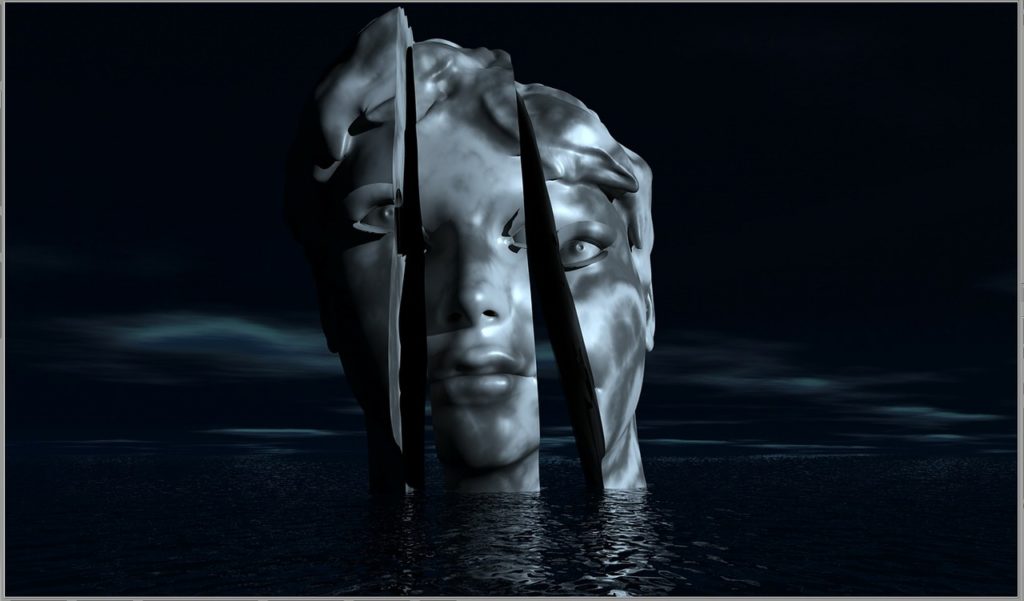
Instead of reason being promoted through the culture and artforms, Western Civilisation now have delusions, psychoticism, and animalistic impulses. This is also done on purpose, because people are easier to control if they are guided toward materialism and nonsensical fictions that teach false morality. However, promoting these kinds of false industries based in control, allow them to become super-exploitive generally. People practised in exploitations will know no bounds, because if some exploitations are morally permissible then other forms must be too. This will be covered with far greater detail in future articles of 24K Journal.
PROGRESS OR DESTRUCTION
Of course, this is not helped by a society that justifies and promotes alcoholism, drug abuse, self-obsession in individualistic differentialism, and onanism; only a society in the throes of being destroyed could allow the promotion of such masturbatory activities that do not help it one iota. It is also unfortunate that in all this turmoil, many of those who have best guarded themselves from the nonsense did so through avoidance to the point of perfecting only moderation. There are two basic paths for a society: progress or destruction. The latter is not actually an option, but rather a figure of apathy. People can choose to either contribute to civilisation or not, but some people have less of an excuse in nature than they presuppose, because the programming and undermining runs deep.

SUMMARY
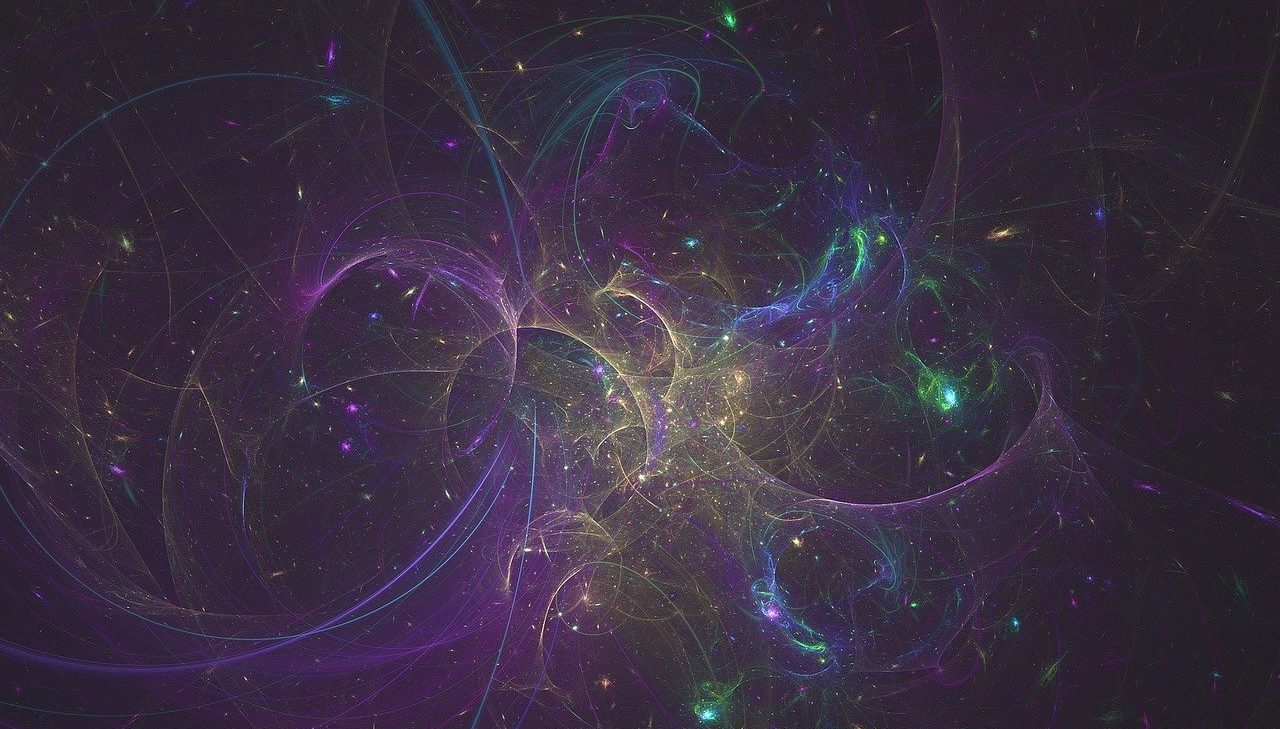
Stability is only possible with moderation through Reason. This can be accomplished in two ways: through training response in elevation or avoidance of creation in retreat, both techniques being similar in ways to radical acceptance, with elevation closer to a “radical presence.” Radical presence allows a person to push through and confront whatever comes forward, most especially inwardly. Retreat is not a denial of Spirit, but rather a fear of unknowns driving constant escape responses. By training response rather than avoiding, we may modify behaviour and thereby also challenge wrong beliefs through the analysis process.
Denial of Spirit, on the other hand, cannot be overcome in this way because it is an internal rejection of connection to the Divine Mind from which all the greatest gifts in life derive. These gifts recommend highest purpose. Believing all experience is an unimportant series of events as defined by electrical stimuli is precisely mistaking the shadows for the light. It is seeing the patterns of larger or smaller things as evidence of purely purposeless mechanism. Denial of Spirit therefore disables the highest purpose, which also disallows the deeper levels of moderation. This denial pervades all interactions, not simply with divinity but also morality. Morality becomes flexible and open to interpretation, muddied by a mechanistic and materialistic worldview that cannot encompass a greater purpose than simple individualistic gain, let alone the highest purpose.
COMPLETE FREEDOM PART 2 – A PHILOSOPHICAL DEFINITION
COMPLETE FREEDOM PART 2 – A PHILOSOPHICAL DEFINITION

“Most modern freedom is at root fear. It is not so much that we are too bold to endure rules; it is rather that we are too timid to endure responsibilities.”
-G. K. Chesterton
“Freedom is the right to tell people what they do not want to hear.”
-George Orwell

First Article in this series: Complete Freedom part 1 – The Unicorn of Philosophy
Principally, societies do not allow criminal behaviour, or behaviour destructive to the common good. This is an already universally agreed upon limitation on liberty. The major problem is that most philosophical definitions treat this limitation as a necessary yet unnatural rider to a seemingly unencumbered definition of liberty. An unencumbered definition of liberty, however, is unnatural itself as it never exists.
There is a legitimate freedom in the option to refrain from a desired action, especially when nothing good can come of it. For instance, refraining from deep water cliff diving if one is likely to pass out mid-dive or building a house without the training. Refraining from any willed action should be an option. This is an over-referenced part of a liberty, but it is not a weakness. So, a good definition of freedom must contend with this as well. However, in most ‘free’ or ‘freer’ nations, there are requirements which one cannot refrain.

HAPPINESS
What of the pursuit of happiness? To most definitions, this is a pleasant nicety but nothing intrinsic to the usual working definition of freedom. With neutral freedom, it is a quality to specify, much as all the other limitations and additions listed above. It is not required, but it absolutely should be. It is blatantly obvious that this neutral freedom is more like a neutralised freedom. Not only is it a freedom that cannot sustain itself, it is freedom that cannot define itself alone, apparently. A definition that fails to account for all qualities of the thing so labelled, is useless and accounts for failures of application.

Happiness as a qualification, delineates the examples of the built structures posited in the last article. The pursuit of happiness within freedom implies wisdom. It dictates one cannot build a house without proper training and blueprints, doing otherwise would not bring happiness. What is happiness, though? Is it not the accounting of internal good over bad? Good, in the form of that which is done by and for a person, is a prime qualifier for happiness.
However, happiness cannot be the most important aspect of a complete definition of freedom. Most of those who think they are free, are not, they have simply found a way of being happy which is good enough for a lot of people. For the majority, freedom is this elusive non-concept of being left alone and unbothered, the neutral definition. People of this mindset remain enslaved to all the things that distract them from complete freedom, no matter how happy they might be in the moment. Happiness is then part of a complete freedom but simply hedonism by itself. Such people are trapped and are not free, but why?
DOING GOOD
The unicorn cannot escape its element nor the element of its freedom, which is to say it does not have the freedom to choose captivity, as this would directly contradict freedom. The same must be true of freedom generally. One cannot be free to entrap oneself, this is not freedom. Therefore, the freedom to do bad cannot apply to the definition. Doing evil, then, is merely an extension of captivity in self-enslavement to the material.
If this is true then the better definition for freedom is “the optimal ability to recognise and do good.” A free person is simply an agent of good, then. This fits all criteria demanded of the already universally accepted facets and limitations on liberty. It effectively removes all necessary riders or additional qualifiers. It cuts through all lies and presents the simplicity of freedom as an absolute moral truth.
The reason that liberty falls apart at the moment of definitional capture is the same as why it falls apart the moment implemented politically, it is because the focus is completely wrong. The focus upon constructs of abstracts can only map out paths to enslavement, whereas legitimate freedom is immanent. Free people are not born free in a ‘free’ nation, nor do they become free upon moving to a ‘free’ nation. Free people become free through the power of the mind, thought and spirit. A nation may become free by enabling their people to learn this lesson.
To test this new definition of freedom, another example can be used. Theoretically, an American bison is neutrally ‘free’ in a large field among cows, given all the food, sunlight, and exercise it needs. However, this is not freedom for it. The American Bison is a herd animal and needs its natural community in order to do good. It is without purpose away from the herd. Away from its true community and among cows, it is without the ability to seek optimal positive benefit or true good. It cannot even recognise good without its herd. There is no chance of optimal outcome for a bison in a herd of cows. In other words, it is only a free bison when it is wisely within its own element. If human freedom is more complex than animal freedom then, it is only on account of the complexity of culture and intellect in the herd.

How much freedom could a person attain 2,000 or 20,000 years ago? Can people in the current era accurately judge the qualities of freedom then and ascertain how free that person was? How much freedom should an individual have in a given era and within a culture in order to secure their optimal contribution?

Nobody can ever give or demand freedom. This is an internal transformation of the spirit. It is educational and cultural. Then the best defence for liberty is a liberty-loving culture that surrounds it. The civilising tendencies of natural human communities are brought about through education and a love for wisdom. It is here that freedom is truly secured in the trust of a natural community, as instilled from an early age. The most philosophically advanced cultures had it based on a trust (Hellenic: PISTIS, often translated as “faith”) of that which was founded in the love of wisdom, the grand discourse or LOGOS. This discourse is represented by phenomenal residency within the master and power states of the Logos domain in Resurrexit Theory (Roe 2023).

Similarly, one is only a free human in their element. Humans cannot do optimal good outside of their natural community. When a human is given everything needed to survive outside a naturally formed and complete community with all cultural nuances, their ability to do good is totally stunted. Whatever their full potential might have been is unknown. Love of wisdom and meaningful connections to a natural community allow for the optimal ability to recognise and do good within its particular cultural nuances. So, it follows, those people most free are also as completely absorbed within their culture as philosophy can permit.
SUMMARY
I suggest the unicorn is representative of the philosophical attempts at defining a neutral liberty, as failed. However, I propose the American bison archetype as representative of a complete freedom, or freedom holistically defined from the internal individuated perspective within their natural environment. This is freedom.
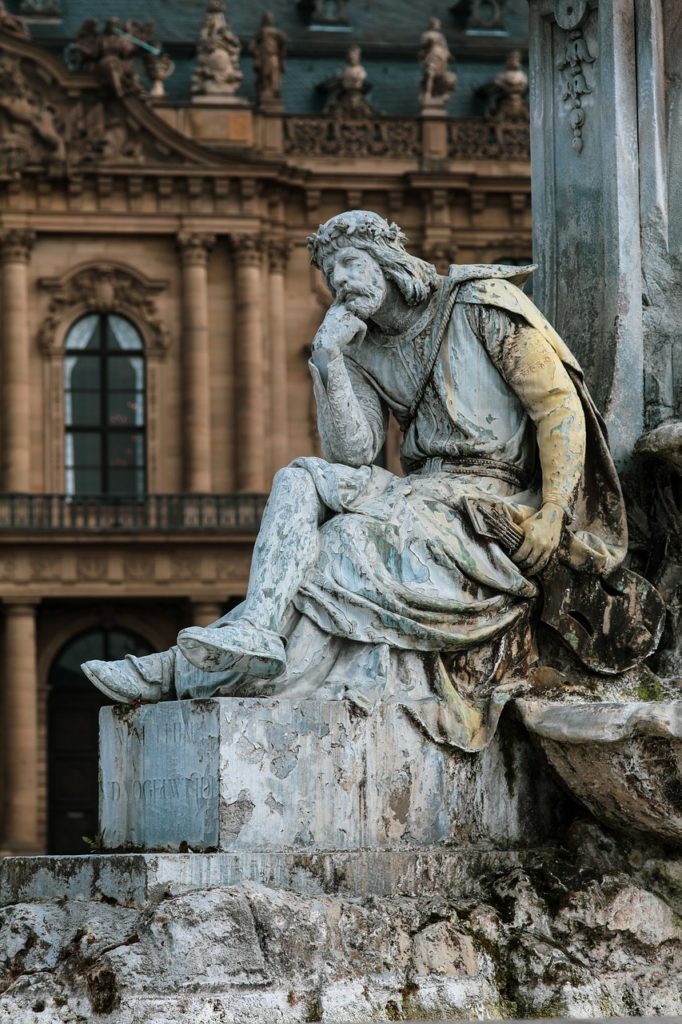
REFERENCES
Roe, M. A. (2023). Resurrexit Spiritus parts 1-7. 24K Journal of Virtues Science (https://24K.cc/). Resurrexit Spiritus: Spiritual Phenomenology, Evolution of Spirit, First Other Theory of Fatherhood Attachment, and Structural Virtues System
First Article in this series: Complete Freedom part 1 – The Unicorn of Philosophy
EPISTEMOLOGY IN CRISIS PART 1 – UNBECOMING SCIENTISM
EPISTEMOLOGY IN CRISIS PART 1 – UNBECOMING SCIENTISM
“The time will come when diligent research over long periods will bring to light things which now lie hidden. A single lifetime, even though entirely devoted to the sky, would not be enough for the investigation of so vast a subject. And so this knowledge will be unfolded only through long successive ages. There will come a time when our descendants will be amazed that we did not know things that are so plain to them. Many discoveries are reserved for ages still to come, when memory of us will have been effaced.”
– Seneca
There are more people working as scientists today than at any other time in history, the growth has been exponential with major innovation predicted as a result (Price 1961). However, genuine innovation per scientist, despite the earlier predictions, has been slowing down (Gold 2021) to a rate approximating pre-enlightenment periods (Adler 2005). It has been argued this is an artefact of escalating complexity, however many newer academic fields merely contribute to the chorus of confusion, without helping untangle complexity. These new fields exist to increase complexity, challenge perfectly reasonable reductionist instruments, and cause confusion through baseless appeals to emotional irrationality. Some of them exist to appease those poorly equipped for the endeavour of sciences, instead of helping them do better.
Most of all, however, it is because scientists are no longer first trained as philosophers. That many scientists will have taken one introduction to philosophy course undermines the very foundation of education for scientific pursuits. Reliability in social sciences are at an all time low (Enserink 2018). Meanwhile, some have proclaimed a “golden age” of social sciences due to innovations in computing and the amount of data available (Buyalskaya 2021). This presumes that the social sciences are on the right track while replicability has been heavily criticised in social sciences, as late (Enserink 2018). I do not see this as so much a problem of practice, as it is symptomatic of much larger issues in science and education.

POLITICS OF THEORY
Humans seek acceptance from peers because it feels good. This is a large part of what drives innovative scientists to perform. However, with a decrease in the average intelligence of a group, say post-graduates, mere popular acceptance of theory can easily become the presiding factor. Perfectly legitimate theories languish with no attention while absurd theories receive renown and recognition. Often this is based on little more than the charisma of the scientist, or the social influence of their professional network.
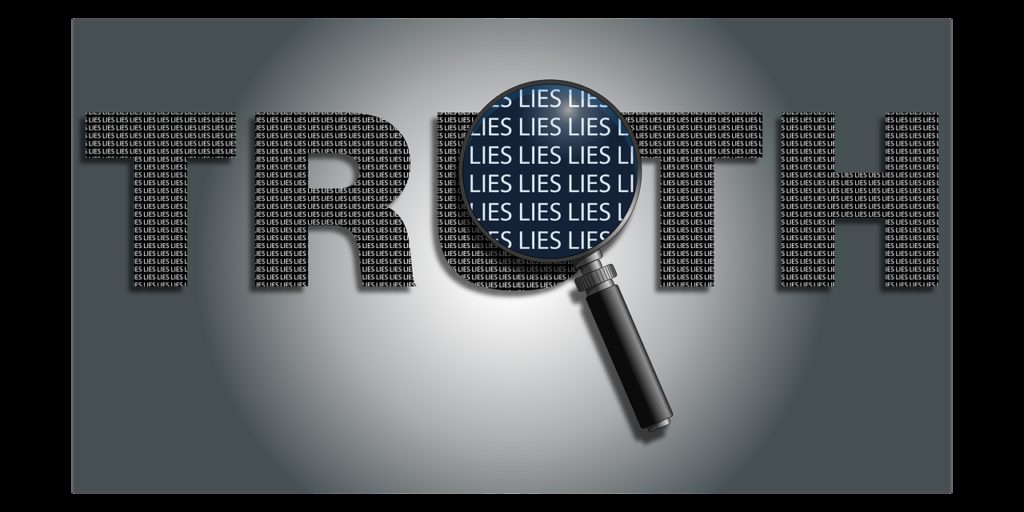
WORKINGS OF SCIENTISM
It is simple to trick educated people into believing nonsense, so long as the plot is “sound” and fits the modelled presentation of “accepted” theories. Modern graduate school curriculums in sciences are geared toward simple presentation of methodologies, writing skills, field history, and theory applications. These are scientistic finishing schools. While valuable for transference of useful skills for the crafts in a particular science, it cannot boost the number of legitimate scientists who ask the questions they should be asking.
Sciences today have become cathedrals of careers. A theory may become a standard spire of the cathedral simply on account of being politically disadvantageous to deny and politically advantageous to affirm or affirm fervently. Investigations informed by celebrated theories are preconditioned toward complimentary results, which necessarily reduce the discovery rate of anomalies, e.g. confounding factors and contradicting data. This is a primary source for the decrease in innovation, yet unrecognised because it is the desired corporate-academic environment. The corporations must dictate acceptable opinions in corporatism (Roe 2023a; 2023b).

THEORETICAL PROBLEMS
Scientistic confederacies often form to “solve theoretical problems.” Typically, the true goal is to divert attention away from and subvert investigation of any phenomena unexplained by a theory. Often the ancillary theories, or theory alterations designed to “solve theoretical problems,” become fully accepted with little debate, because there is little else to do. The theories cannot be overturned, there are too many careers and lies at risk. There is a high degree of willingness to suspend disbelief afforded by the sheer popularity of a guarded primary theory, or simply the gravity afforded them with age, matching the pain of punishment reserved for any heterodoxy. This willingness strengthens with the accrual of theories based on the primary one, and this tower on the cathedral grows.
Another scientistic strategy for diversion away from theoretical weaknesses is the placement of false theorists. These serve to either draw attention away from legitimate avenues of research or generate bad attention by association with the ridiculous. This is done not only to protect favoured theories but also political positions and topics considered controversial. Unfortunately, these bad theories often find too large of an audience due to their legitimisation by promotion through corporatist media outlets.
BUSINESS AND SCIENCE
Once profit-focused people are involved in the healthcare industry, instead of healers and health scientists alone, focus shifts away from healing toward profit (Roe 2023b). This is especially true in leadership. Certain business rules, if applied as guidance in evaluating sciences of healing, are disastrous for medicine (Roe 2023b). Malevolent people can easily utilise business conventions and “the bottomline” to force deadly practices internally while hiding behind the sheen of medicine to promote themselves as heroes.
There are identical dangers and risks of bad practices throughout the scientific fields with the introduction of business concerns (Roe 2023a). Every industry must have its own currency of knowledge, based in the underlying science. The same is true of science itself. Philosophy is the undergirding of science, essentially the science behind science.
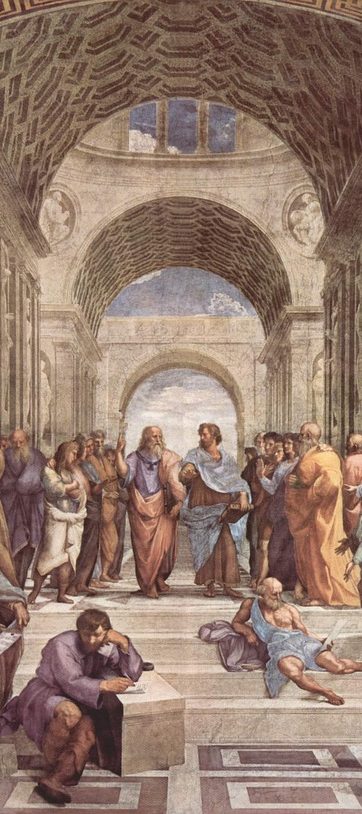

Bad actors exist, and the most dangerous are those able to remain silent as they do their damage. This is especially true where the ulterior political benefits are perceived as outweighing all possible costs, whatever those perceptions might be. This is easily imaginable in regards to healthcare.
In corporatist business, the purpose is to destroy the competition. This is the antipathy of science. It is a nightmare of many that sciences should be dictated by corporate manipulation of public opinion through ignorant emotion, but it is already reality.
BUSINESS AND SCIENCE
Scientism is rampant across the human dialectic. The problems mount and appear to be worsening. All sciences must be refactored in bases back to proper philosophical alignment, but how is this to be done? Realignment is possible by placing scientific innovation, or new knowledge, in its proper place within the mind as informed by a given tradition or culture, and then deriving a more reasoned foundation of knowledge from that comprehension. This is especially true for sciences that pretend to have a simplified grasp upon the past, such as astronomy, geology, history, or archaeology. Biases are not only expected in these fields, they are native and fundamental to the outcome. To ignore this fact is dishonest. As such this requires a new epistemology.

REFERENCES
Adler, R. (2005). Entering a dark age of innovation. New Scientist.
Buyalskaya, A., Gallo, M., & Camerer, C. F. (2021). The golden age of social science. Proceedings of the National Academy of Sciences, 118(5), e2002923118. doi:10.1073/pnas.2002923118.
Gold, E. R. (2021). The fall of the innovation empire and its possible rise through open science. Research Policy, 50(5), 104226.
Enserink, M. (2018). “Research on research”. Science. 361: 1178–1179. doi:10.1126/science.361.6408.1178.
Price, D. J. S. (1961). Science Since Babylon. Yale University Press.
EPISTEMOLOGY IN CRISIS PART 2 – PHILOSOPHIC BECOMING
EPISTEMOLOGY IN CRISIS PART 2 – PHILOSOPHIC BECOMING
“Thus the man, in himself, is the child. And what the child has to do is to rise out of this abstract and undeveloped ‘in-himself’ and become ‘for himself’ what he is at first only ‘in-himself’ – a free and reasonable being.”
– Hegel
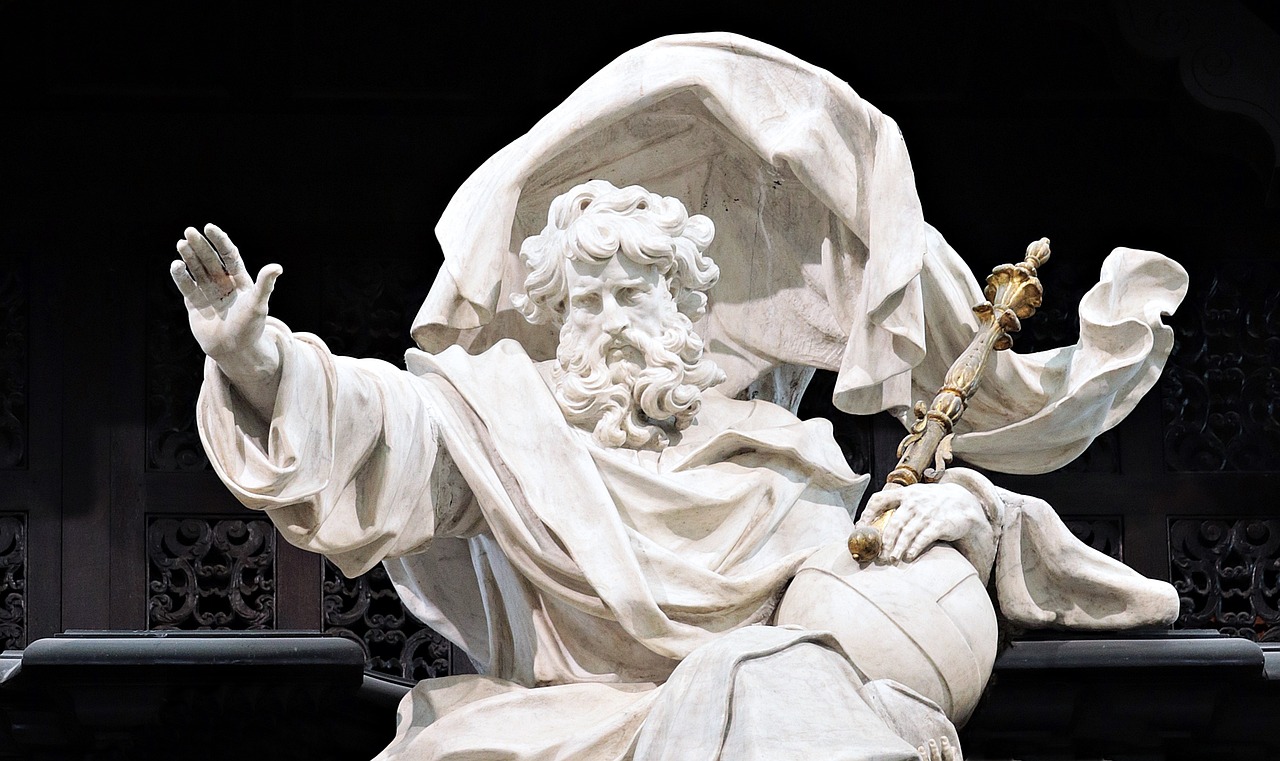


Knowledge & Experience
The primary problem in science remains the underlying separation between knowledge and experience. Many scholars point to the Cartesian divide as being determinative in that separation. However, the societal arrangement of court intellectualism predates the philosophical distinctions he made, so Descartes is exonerated even if his ideas are used to justify modern scientistic practices. Some have even attempted to solve the problem with more scientism, creating so-called “metascience,” which is an exciting new way of avoiding the “ph” word (Enserink 2018). Metascience to philosophy is psychiatry to psychology, needless to say it belongs under philosophy. However, in practice its separation from philosophy is obvious by the scientistic negotiating and finagling inherent. If the divide between knowledge and experience can be bridged then, theoretically, that would be a solution and formation of a new epistemology.
SILOS OF INFORMATION
While the confusion has insinuated itself into additional territory of scientific categories more recently, it was definitely ever-present among sciences that relied upon notions of history, since their beginning. This is less a function of modernity or philosophy than a never-ending supply of money, and therefore corruption. Corporations and associated foundations purposefully encourage divisions between the sciences, forming silos of information. The basic misinterpretation of Descartes helps justify the division of scientists from their inherent responsibilities. Is it enough simply to be capable of thought and have any desires, to engage in science?
The more egregious result of the Cartesian misinterpretation is the lie that a thought and a person can be equally objectively defined, with the only necessities being current action and “pertinent” facts, like a recipe. If this were true, then there would be no need for discourse and everything could be obviously transcribed in simple and objective language without need for expansive commentary. Nobody would have come up with a term like “metascience,” that is for certain. It is not true that a person and a thought can be equally defined, however. Therefore discourse and underlying philosophies are here to guard against corruption.
SUM
Cogito, ergo sum is an unfortunate combination for some translations. Descartes never implied that all thoughts were equal due to substantiation of being. He never intended simply being, sum, to qualify thought. His primary implication was that a person cannot doubt their own being at the asking of the question since the very doubt disproves its own thesis. “I doubt I am, therefore I am,” or dubito sum, ergo sum.
Descartes was concerned with a proof of reality in the face of philosophical complexity. He formulated the concept in a theoretically finite present to confront a particular problem of philosophic existence with the conscious asking being proof. No doubt, he inferred from the problem that anybody who arrived at the question of their own existence would do so only after extensive thought. He never intended for perceived incongruence to be interpreted as an invitation for the entry of the non-philosophical into the sciences. He probably never presumed it would be necessary. “We cannot doubt our existence while we doubt,” can not be used to undermine the journey a thinker must take in order to arrive at that doubt.
Perhaps the greatest damage from the misinterpretation of the concept has come from the assignment of being, sum, in a singular moment of thinking, or a micro-phase of becoming. In fact, had Descartes not considered preceding thoughts necessary to his grand conception, he would not have conceived it in terms of his own self, “I,” ironically. The misconception of his phrase, however, models general human behaviour. This is proved by the historical compression of a life that occurs after death, where a moment, misinterpreted or not, is taken as expressing the total essence of an individual.


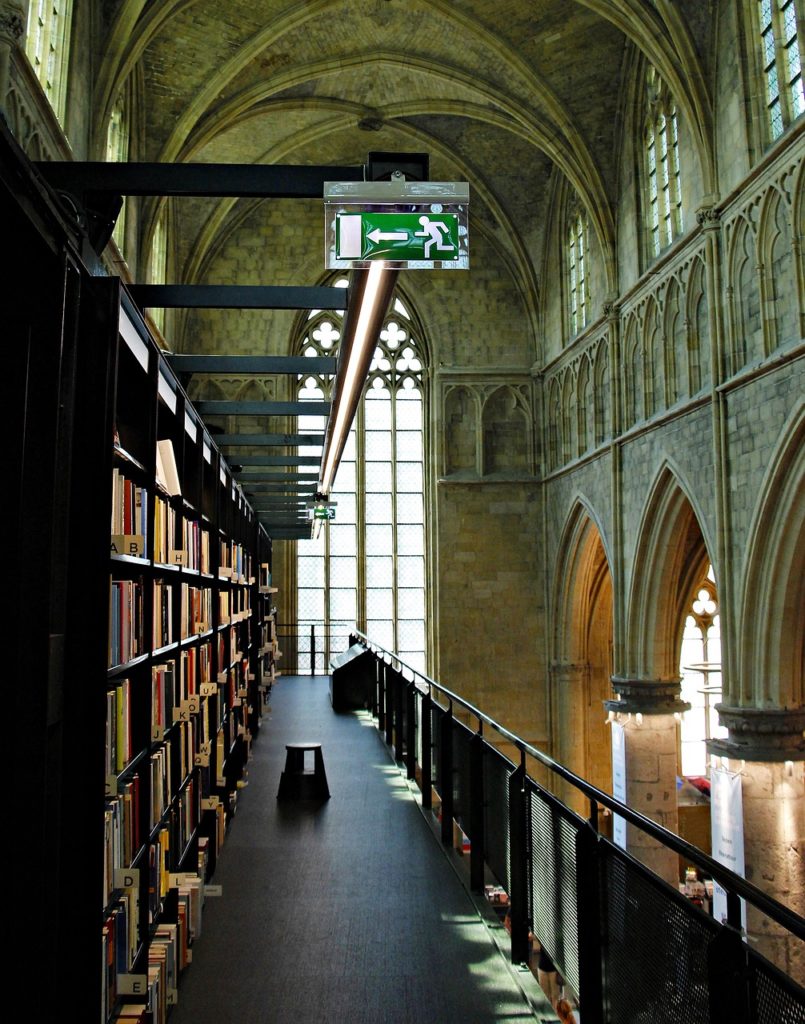

“We cannot doubt our existence while we doubt,” can not be used to undermine the journey a thinker must take in order to arrive at that doubt.
I REFLECT, THEREFORE I AM
Descartes’s Latin phrase implies an infinite loop of thought, not a singular thought, as in cogitavi. Any individual action, regardless, cannot be presumed to perpetually qualify the finite being, sum. Cogito derives from a root meaning “to do with,” and might be better translated as “I reflect,” as almost a profession. Extracting a pithy foundation for knowledge from Descartes into English begins with comprehending this thought action.
In fact, thought cannot be a singular action, as a singular thought is impossible outside of a person’s very first thought. Since thought is an action of a dynamic faculty, its persistence cannot contribute to what exists without changing it, and every thought must change other thoughts. Thought cannot make anything identical in the present to what was in the past, let alone itself. Therefore an infinite progress of related states in time toward an undefined future end is referred to together as becoming.
With cogito, ergo sum came the implication of conglomerative being states in historical series, with each mental moment inclusive of previous moments. There can be a more exact statement with cogito ergo fieri, “I reflect therefore become.” In Resurrexit phenomenology, the consciousness is an accumulative complex entity that cannot be summarised into a moment (Roe 2023a).

IMMANENT ETERNAL REBIRTHS
Every moment of mind births the next, endlessly. So all past moments leave birthmarks of sorts upon proceeding ones. These marks upon the procession in moments of mind constitute the existence of the consciousness, it is the state. Of these marks through time constituting self, the elements most distinctively self are always the most original or habited. These indicate the immanent endeavours most striven toward. These endeavours make a fingerprint shaped through environment by the basic nature of the matured Spirit. Consciousness attempts an inclusion of all moments, or everything pertinent to a matter, including an image of self as most accurate reflection of Spirit. The thinker does not just make thoughts, but is made in the construction of those thoughts most true to the Spirit.

The “I” is a permanently present eternal now without direct indication to past. Thus this universalised self-reference in the language of Descartes can only be resolved by replacing first-person action, “I,” with an objective-subjective figure, who, having had thoughts, continues to have thoughts, becoming closer to the actual Spirit. This figure must be professional, yet simple enough to be specific at the same time as universal: Thinker.
If substance of thought prove existence then quality of matured thoughts prove the essence of Spirit, which is to say its proximity to universals. Since all thoughts are acts of becoming, the quality of the thoughts determine the becoming and provide the evidence for the types of those thoughts. Good thoughts improve the quality of thought, with better thoughts doing all the more cyclically. Bad thoughts ruin quality of thought. It stands to Reason: the Thinker Becomes.
COGITATORIS ERIT
Cogitatoris Erit means “the Thinker Becomes.” This is more appropriate for a foundation of knowledge in association with the phenomenology of Resurrexit Theory (Roe 2023b). Thought alone is meaningless without the perseverance of a thinker, a factor hidden by the anonymous reference to self, “I.” The thinker acting toward becoming, accumulating thoughts, is a much more robust confirmation of existence: “a thinker exists,” for what? “To become the quality of thoughts.” Descartes never intended to disqualify the quality in thought or the thinker. The only reliable proof of quality thought is progress, attendant behaviours evidencing a higher existence.

SELF DESTRUCTION
Attempting to extract the self is an inherently flawed and foolhardy venture that ALWAYS fails. Not even a theoretically “perfect” person can do this. Only a system bent on the demise of culture could expect this of a person. Elements of culture that are beneficial to human organisation are necessarily bad for corporatism: true human science, human philosophy, and legitimately liberating innovations. Corporatist sciences inevitably devolve into anti-science ventures with destructive ends. The corporate-approved scientism insists on impossible ideas. This is science dominated by corporations using the emotions of the population, as seen now.
The “thinker becoming” attends the valuable notion that a person must philosophically explore the self before being capable of contributing to the human dialectic in a meaningful way. Thought regarding existence alone may validate it, but value is determined by quality of thoughts, which is derived from the character of Spirit developed through birth, rearing, culture, thought, and experience. This is all validated by progressive behaviours.
SO-CALLED NON-BIAS
Using ‘thinker’ instead of the simple actions of thought refuses the notion of non-bias from science. It incorporates the action with its own profession. The action makes the subject, and so the subject is made explicit. In other words, the performance of science without the self and bias is impossible, and anybody that claims otherwise is a liar. An individual with biases alternative to the continuation of their own society, culture, and life, is not moral nor ethical and cannot be trusted, with science or otherwise. They cannot be entrusted with their own culture or those of others. This is proved by their own illogical and materialist behaviours. Therefore, the Thinker Becomes.
THINKERS ARE BECOMERS
This means the only opinions that matter in science are those of thinkers who have proven active “becomers,” signifying progressive and quality thoughts. Such philosopher-scientists are in constant stages of self-improvement. Behaviours are the only evidence possible for proving right-thinking. Scientists who do not demonstrate morality and ethical behaviour in Reasoned moderation are philosophically undeveloped. This inhibits judgement through necessarily warped perspectives of the self in relation to the World.

SCIENTISTIC INSTRUMENTS AND GENOCIDE
This false self-denial forces the subconscious into active misalignment, because this denial of the self is an internalised slavery. This can cause psychotic notions and delusions. This internalised serfdom cripples efforts of the Spirit. A person who cannot be honest about the self and recognise excellence, cannot demonstrate virtues and is predisposed to materialism and error (Roe 2023b). A lot of this stems from envying undeserving others, or corruption, perceived or otherwise. This is based on an egoistic fear built on conceit, which is instigated by lust and causes confusion. This drives ignorant and lustful sloth, which manifests as venal dependence and greed. These give licence to delusion, where ignorance and confusion allow for their enslavement to a warped, immature, and arbitrary subconscious.
This delusive error corrupts perceptions of things above and below for the person. The notions of others and law are obscured as nothing more than instruments at their disposal. The joining of ignorance and confusion is a blindness to all but a corrupted egoism and self-importance. A perfect example of this is an ignorant person who does not take care of progeny and then lives by committing crimes. Each of these crimes further potentialise the immanent materiality of corruption, procrastination, absolutism, and cowardice. When in prison, thoughts are turned away from responsibility, toward blame. Attempts to identify the individual self in universal terms outside of the compatible and progressive particular, amid the active delusions of self, fail as basically unnatural propositions.
Another example of such blindness are those wholly bereft of culture who believe personal enjoyment is the sum of reality. These hedonists appease inner emptiness by pretending to some corrupted and loose ideas of society that look nothing like genuine human community. They justify their actions internally by the level of corruption in society. This process is always active for those positioned as societal outsiders, or so alienated. This explains mindsets involved in the COVID-19 plandemic, which may qualify as the largest genocide in history.

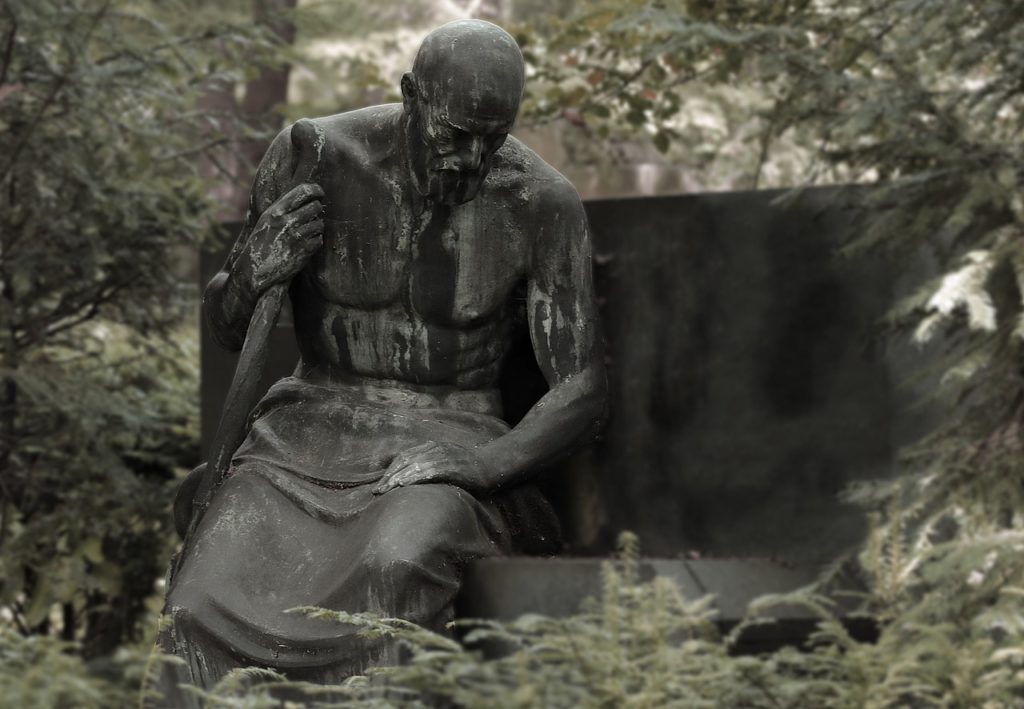

SUMMARY
Science is failing but how can this be elaborated upon for the purposes of repair? The answers for science should always start from bases. Structure for science already exists in philosophy, but philosophy is pointless without knowledge, which is supposed to be science. So rather than some entity unto itself, science should be seen as an arm of philosophy. If science is an arm of philosophy then the purpose of science is to improve the potential of philosophy. This is why it is a necessity for scientists to be philosophers first and foremost. Meanwhile most scientists will have taken no more than one class in philosophy throughout their entire education.
All corporatist-aligned institutions are detrimental to honest scientific inquiry. Runaway profits in medicine and science funding are about as normal as academia being funded by corporate foundations. These are to be recognised as signs of corruption and the exploitation of flaws within the overall system. For example, the blatant profiteering involved with the mRNA injections, wherein the only recipients of any longterm immunity were the pharmaceutical giants. The next article reveals the corporatist plot to destroy all alternative foundations for human organisation and why that matters to science.
REFERENCES
Enserink, M. (2018). “Research on research”. Science. 361: 1178–1179. doi:10.1126/science.361.6408.1178.
Roe, M. A. (2023a). Resurrexit Spiritus part 3 – Resurrexit Theory – The Dualist Expansion of Structural Phenomenology. 24K Journal of Virtues Science. Resurrexit Spiritus: Spiritual Phenomenology, Evolution of Spirit, First Other Theory of Fatherhood Attachment, and Structural Virtues System
Roe, M. A. (2023b). Dialectic Mind – Resurrexit Spiritus part 4. 24K Journal of Virtues Science. Resurrexit Spiritus: Spiritual Phenomenology, Evolution of Spirit, First Other Theory of Fatherhood Attachment, and Structural Virtues System
